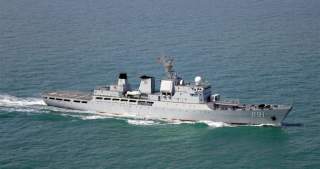The Philippines Stood Up to China—and Won
A new era in the South China Sea has begun.
Secondly, key naval powers such as the United States, Japan, Australia and France, among others, can leverage the verdict as a legal pretext for conducting sustained and multilateral Freedom of Navigations Operations close to Chinese-occupied low-tide-elevations in the Spratly chain of islands. They now have the full blessing of international law.
Interestingly though, Philippines’ newly-elected President Rodrigo Duterte has made it clear that he isn’t interested in flaunting the verdict to provoke China, calling for restraint and sobriety instead of compliance (by China) and enforcement (by America and allies). If anything, he is interested in reopening communication channels and is set to dispatch former President Fidel V. Ramos, who deftly deal with the Mischief Reef crisis in the mid–1990s, to kick start high-level bilateral negotiations with China. Most likely, Manila will choose not to release a strong statement of condemnation against China in exchange for provisional concessions such as a halt to China’s harassment of Filipino fishermen, indefinite postponement of any impending Chinese plans to declare an exclusion zone within Philippine EEZ, or build military facilities in the Scarborough Shoal.
In absence of clear American commitment to come to the Philippines’ rescue if there were to be a military conflict, the Duterte administration has decided to take a diplomatic leap of faith. It will be a highly risking but potentially-rewarding tactical recalibration that can go both ways. What is clear, however, is that China can no longer claim to be a law-abiding and responsible power if it chooses to ignore the verdict. Two weeks into office, the Philippines’ foul-mouthed leader, meanwhile, has stumbled right into the heart of a high-stakes global geopolitical chessboard.
Richard Javad Heydarian teaches political science at De La Salle University, and formerly served a policy adviser at the Philippine House of Representatives (2009-2015). The Manila Bulletin, a leading national daily, has described him as one of the Philippines’ “foremost foreign policy and economic analysts.” He is the author of Asia’s New Battlefield: The US, China, and the Struggle for Western Pacific (Zed, London). Follow him @Richeydarian.
Image: PLA Navy. Flickr/Simon Yang.

